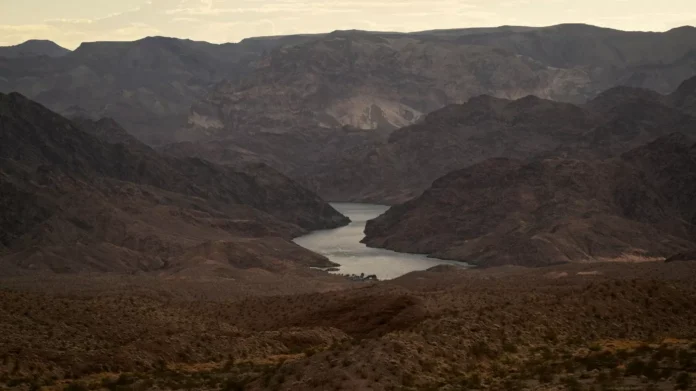Lead Negotiators from Colorado River’s Upper Basin States Face Uncertainty and Urgency as Deadline Looms Near
As the deadline to determine the fate of the entire Colorado River system draws closer, lead negotiators from the Upper Basin states are expressing a sense of urgency and uncertainty. The future of this important water source is at stake, and the pressure is on to find a solution that benefits everyone involved.
At a recent meeting, representatives from Colorado, New Mexico, Utah and Wyoming came together to discuss the state of the Colorado River. They were joined by officials from the Bureau of Reclamation, the U.S. Department of the Interior, and other key stakeholders. The mood in the room was a mix of concern and determination, as the group grappled with the challenges facing the river and the communities that rely on it.
According to one of the negotiators, “If you are in the Upper Basin states or probably anywhere across the West, you know it’s not looking so good right now.” This sentiment reflects the reality that the Colorado River is facing a multitude of issues, including overuse, drought, and climate change. These factors have put the river’s water supply in jeopardy and have forced the Upper Basin states to confront the difficult task of finding a sustainable solution.
One of the main concerns for the Upper Basin states is the looming deadline to finalize a Drought Contingency Plan (DCP) by the end of 2018. This plan, which has been years in the making, aims to reduce water consumption and ensure that the river can continue to meet the needs of all parties involved. However, with only a few months left to reach an agreement, the pressure is on to find a compromise that satisfies all stakeholders.
The urgency to finalize the DCP is further compounded by the uncertainty surrounding the future of the Colorado River. As the demand for water continues to increase and the effects of climate change become more pronounced, the future of the river remains uncertain. This uncertainty has left the Upper Basin states with a daunting task – to find a solution that not only addresses the immediate concerns but also prepares for the challenges that lie ahead.
Despite these challenges, the lead negotiators from the Upper Basin states remain committed to finding a solution. They understand the importance of the Colorado River to the entire region and the need to work together to ensure its sustainability. As one negotiator stated, “We are all in this together. We need to work collaboratively and find a way to make this work for everyone.”
The urgency and uncertainty surrounding the Colorado River have also sparked a sense of determination among the negotiators. They are determined to find a solution that is fair and equitable for all parties involved. This determination was evident in the discussions at the meeting, as the group explored different options and ideas to address the issues facing the river.
The lead negotiators also expressed their appreciation for the support and involvement of the federal government in finding a solution. The Bureau of Reclamation and the Department of the Interior have been actively involved in the negotiations and have provided valuable insights and resources to help reach an agreement. This collaboration between the states and the federal government is essential in finding a sustainable solution for the Colorado River.
In conclusion, the lead negotiators from the Upper Basin states are facing a challenging task as they work towards finalizing the DCP by the end of the year. The urgency and uncertainty surrounding the Colorado River have created a sense of urgency, but also a determination to find a solution that benefits all stakeholders. With the support and collaboration of all involved parties, there is hope that a sustainable solution can be reached, ensuring the future of this vital water source for generations to come.

